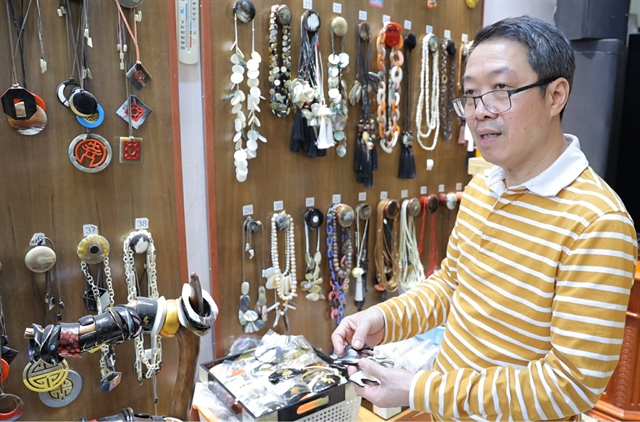 Life & Style
Life & Style

 |
The culture industry is not only a money-spinner for a country, but is possibly a major sector that boosts the economy. Bùi Hoài Sơn, deputy head of the Việt Nam Institute of Culture and Arts Studies (VICAS), said this, while speaking about the development of the culture industry in Việt Nam in recent years. —File Photo |
The culture industry is not only a money-spinner for a country, but is possibly a major sector that boosts the economy.
Bùi Hoài Sơn, deputy head of the Việt Nam Institute of Culture and Arts Studies (VICAS), said this, while speaking about the development of the culture industry in Việt Nam in recent years.
Are you sure the culture industry in Việt Nam meets international standards?
There is a culture industry in Việt Nam, but it is not professional. It needs a strategy to promote itself in accordance with international rules.
What is required to promote the culture industry in Việt Nam?
Talent, cultural potential, business skills and technology are four factors needed to promote the culture industry.
Business skills are essential to introduce cultural products in the market. Additionally, technology is a tool that artists use to make their art ideas become real. It also helps to launch cultural products effectively.
The four factors need to be closely related in promoting the culture industry.
In Việt Nam, these factors have not developed together. For example, fine arts is a part of the culture industry but we have focused on artist training only. These artists are able to paint but don’t know how to introduce their work in the market.
It means there are a lot of things to be done such as popularising artists and their work and introducing the artworks to local and international audiences, in particular.
Not just fine arts, but other sectors such as cinema, music and theatre face the same unsolved issues.
It is rare to see creative art spaces in Việt Nam. Who will be in charge of establishing creative art spaces, the government or individuals?
Creative art spaces are very new in Việt Nam. There are some in large cities such as Hà Nội, Hải Phòng and HCM City.
I think both the government and individuals are responsible for establishing creative art spaces. The individuals can pour money into the creative art, whilst the government can promulgate policies supporting the operation of such spaces.
The government should sponsor the spaces because they play an important role in promoting a professional culture industry in the country.
Creative art spaces are necessary to connect artists who make cultural products. These are the first places where cultural products can be seen. The spaces are also a place of interaction between artists and their audiences.
There are many creative spaces across the world such as World Silicon Valley in the United States, and Brighton and Bristol in the United Kingdom that are very effective in fostering creativity. They not only promote the creative industry, but also produce growing value commodities for their countries.
You are from an institute of culture. Have you seen any progress in the development of the culture industry in Việt Nam in recent years?
In the last two or three years, there have been positive social changes in the culture industry. Việt Nam has taken advantage of the UN cultural agency UNESCO’s convention on the protection and promotion of diversity 2005 to promote the culture industry in the country.
At a high-ranking official level, international integration is regulated by the Vietnamese Government in many fields such as economics, trade, science and technology and culture. The government has asked the Culture, Sports and Tourism Ministry to draft a strategy to develop the culture industry in the country in the 2020-2030 period.
I hope the government will approve the strategy with a view to promulgating policies that supporting creative enterprises’ and individuals’ performances.
Recently, Việt Nam Television programmes such as a Khởi Nghiệp (Start Up) show have inspired people to take part in the culture and creative industry.
I believe when people understand that cultural potential is itself a major sector of the economy, the culture industry will become a soft power of Việt Nam in the world. — VNS




